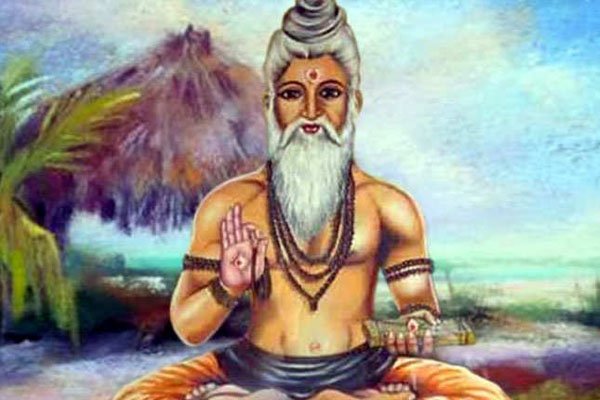Explore Gotras

Kutsa: A Revered Sage in Hindu Tradition
Kutsa is an important figure in Hindu mythology and Vedic tradition, known for his wisdom and spiritual contributions. He is regarded as a sage whose story is closely associated with the Rigveda, and he is credited with composing hymns that express deep spiritual insights. Although not as widely known as some of the more prominent Rishis, his role in the Vedic and epic traditions makes him an intriguing figure.
1. Origins and Lineage
- Kutsa in the Vedic Tradition:
- Kutsa is considered a Vedic Rishi and is said to have been a great sage during the Vedic period. His name appears in various Vedic texts, particularly the Rigveda, where he is praised for his wisdom and hymns.
- Kutsa in the Vedic Tradition:
- Parents:
- Kutsa is the son of the sage Arjuna (not to be confused with Arjuna of the Mahabharata) and Satyavati, making him part of the Bhrigu lineage. Some texts suggest he also had a connection with the Angirasa family. His association with these prominent families in Hindu tradition gives Kutsa a revered status as a spiritual guide.
- Parents:
2. Kutsa’s Role in Hindu Mythology
- Kutsa in the Vedas:
- Kutsa’s name is often found in Vedic hymns, where he is praised for his contributions to the spiritual and ritualistic aspects of the Vedic tradition. His hymns are said to invoke the deities of nature, agni (fire), and other cosmic forces.
- Kutsa in the Vedas:
- Story of Kutsa’s Relationship with Indra:
- One of the most notable stories involving Kutsa is his connection with the god Indra. According to the Mahabharata, Kutsa had a significant role in Vedic rituals, especially concerning sacrifices (Yajnas). In one story, Kutsa requested Indra for a special divine gift, which Indra grants. This interaction between Kutsa and Indra highlights the sage’s prominence in divine circles and the cosmic order.
- Story of Kutsa’s Relationship with Indra:
- Role in the Rigveda:
- Kutsa’s hymns in the Rigveda are particularly focused on invoking the divine powers for prosperity, protection, and spiritual awakening. His contribution to the Rigveda is a testament to his spiritual depth and connection with the divine.
- Role in the Rigveda:
3. Kutsa’s Contribution to the Vedic Tradition
- The Vedic Hymns of Kutsa:
- Kutsa’s hymns in the Rigveda are considered an important part of the Vedic literature. They reflect the ancient spiritual practices and offer insights into ritualistic rites, the worship of Agni, and the understanding of cosmic forces. His work has significantly contributed to the understanding of Vedic worship and the spiritual hierarchy in ancient texts.
- The Vedic Hymns of Kutsa:
- His Influence on Vedic Rites:
- Kutsa is also associated with the practice of sacrificial rites, including the Yajnas, which were central to the Vedic tradition. His hymns outline how to perform these rituals correctly, connecting human actions with divine forces for the well-being of society.
- His Influence on Vedic Rites:
4. Kutsa’s Role in Hindu Tradition
- Kutsa in the Mahabharata:
- In the Mahabharata, Kutsa is sometimes mentioned as a sage who interacts with significant figures in the epic, providing insights and wisdom. His presence in the epic underscores his importance in the broader Hindu narrative, which is rooted in spirituality, morality, and ritual practice.
- Kutsa in the Mahabharata:
- Kutsa’s Connection to Indra:
- As a sage who was deeply connected to the divine, especially through his relationship with Indra, Kutsa is often considered a model of devotion and discipline in Vedic practice. His connection with Indra emphasizes his close association with the gods, further cementing his place in the mythological and Vedic framework.
- Kutsa’s Connection to Indra:
5. Kutsa’s Legacy in Hinduism
- Spiritual Wisdom and Knowledge:
- Kutsa’s legacy is primarily linked to his spiritual teachings, which focus on ritual sacrifice, the worship of the gods, and the cosmic order. His contributions to the Vedas are still regarded as a valuable part of the spiritual heritage of Hinduism.
- Spiritual Wisdom and Knowledge:
- Influence on Vedic Thought:
- Kutsa’s works and teachings helped shape the Vedic rituals that are central to the Hindu religion. His hymns and the ritualistic elements in his teachings influence the way modern Hindus practice sacrifices, devotional rites, and other spiritual practices.
- Influence on Vedic Thought:
6. Kutsa’s Influence in Hinduism
- Ritualistic and Spiritual Influence:
- As a sage who contributed to the Vedic literature and ritual practices, Kutsa’s influence is felt in the ongoing ritualistic and spiritual practices within Hinduism. His teachings offer a guide for performing sacrificial rites, invoking divine blessings, and living in harmony with the cosmic order.
- Ritualistic and Spiritual Influence:
- The Legacy of Kutsa’s Wisdom:
- Although Kutsa’s legacy may not be as widely known as other Rishis, his wisdom, especially in the Vedic hymns, has left an indelible mark on the development of Hindu thought, ritualistic practices, and the spiritual and philosophical traditions of Hinduism.
- The Legacy of Kutsa’s Wisdom:
7. Conclusion
Kutsa holds a respected place in Hindu mythology, particularly in the Vedic and Rigvedic traditions. His contributions to the spiritual and ritualistic aspects of Hinduism, especially through his hymns and teachings, continue to influence devotees, priests, and scholars. His interactions with Indra and his teachings on sacrifice and divine worship are important components of the Vedic tradition that remain significant in the broader context of Hinduism. Through his spiritual insights and ritualistic contributions, Kutsa’s legacy endures as an integral part of the spiritual fabric of Hindu tradition.
